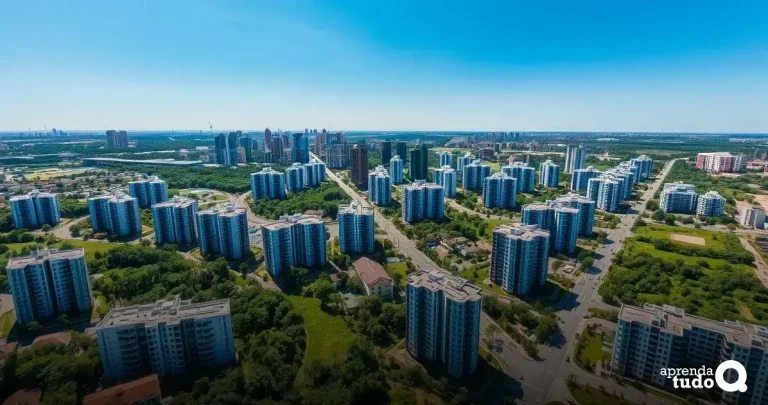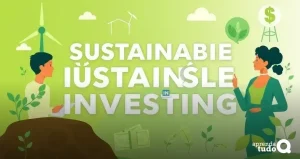Real estate growth is transforming communities. As cities expand, opportunities emerge for savvy investors. Understanding these trends is crucial for decision-making.
Investors are keen to identify regions where real estate growth is surging. This can lead to significant returns on investment. The dynamics of the market are ever-changing.
By analysing economic indicators, you can better position yourself in this competitive landscape.
Current Trends in Real Estate Growth
Current trends in real estate growth show a shift towards urban living. People are moving back to cities, seeking convenience and a vibrant lifestyle.
This change creates new opportunities for investors looking at residential properties.
Another trend is the rise of eco-friendly developments. Buyers are becoming more conscious of the environment.
They prefer homes that are energy-efficient and sustainable. This demand is pushing developers to create greener options, making these properties more attractive to investors.
Finally, technology plays a big role in real estate growth. Virtual tours, smart home features, and online transactions are becoming standard.
Investors who adapt to these trends can better connect with potential buyers, making real estate more accessible and appealing.
Factors Influencing Real Estate Growth
Many different factors influence real estate growth. One key factor is the economy. When jobs are plentiful and wages rise, more people can afford to buy homes.
This demand pushes property prices up, creating opportunities for investors.
Another important factor is location. Areas with good schools, parks, and transportation tend to attract more buyers.
Investors who focus on these desired locations can see significant growth in their investments over time.
Lastly, government policies also play a role in real estate growth. Tax incentives and infrastructure projects can improve areas and increase property values.
Investors who stay informed about these policies can better position themselves to take advantage of upcoming opportunities.
Impact of Economic Changes on Real Estate Growth
Economic changes can greatly affect real estate growth. When the economy is strong, more people have jobs and can afford homes.
This increased demand often leads to rising property prices, creating a beneficial environment for investors.
However, when economic downturns occur, the real estate market can slow down. Job losses and lower incomes mean fewer buyers in the market.
This can lead to a decrease in home values, making it harder for investors to sell properties at profitable prices.
Additionally, interest rates play a significant role in real estate growth. When rates are low, borrowing costs decrease, making it easier for people to buy homes.
Conversely, higher interest rates can frighten away buyers. Investors should always keep an eye on these economic factors to make informed decisions.
Real Estate Growth Strategies for Investors

Real estate growth strategies for investors begin with research.
Understanding market trends and local conditions can help investors identify the best areas for investment.
By staying informed about neighbourhood developments, investors can make smarter choices.
Diversification is another important strategy.
Owning different types of properties, such as residential, commercial, or rental units, can protect an investor if one market slows down.
This approach helps balance risks while increasing the chances of profitable returns.
Networking is also crucial for success in real estate.
Building relationships with other investors, real estate agents, and local experts can provide valuable insights and opportunities.
Engaging in community events and online forums can help investors find more chances to grow their portfolio.
Future Predictions for Real Estate Growth
Future predictions for real estate growth suggest a continued rise in urban living. As more people prefer city life, the demand for homes in urban areas will likely grow.
This trend creates rich opportunities for investors willing to focus on these sought-after locations.
Technology will also influence real estate growth in the coming years. Smart home features and online buying processes will become the norm.
Investors who adapt to these technological advancements will have a competitive edge, appealing to modern buyers.
Lastly, sustainability is expected to play a big role in future real estate developments. Buyers are showing a strong preference for eco-friendly homes.
Investors who prioritize green building practices may find increased interest and higher property values in the future.
Real estate growth offers many opportunities for investors. When the market is thriving, buying properties can provide great returns.
Investors who understand market cycles can seize these chances to grow their portfolios.
Another key aspect is staying informed about emerging trends.
Knowing which locations are gaining popularity can help investors make wise decisions about where to invest.
Areas that show potential for growth can lead to valuable investments.
Networking within the real estate community is also essential. Building connections with other investors, agents, and professionals can uncover hidden opportunities.
Sharing insights and experiences can help investors enhance their strategies and find the best deals.
Technology and Sustainability
In today’s fast-evolving real estate market, technology and sustainability are no longer optional — they are essential.
Digital innovations such as virtual tours, online closings, and smart home systems are transforming how people buy and sell properties.
These tools not only make transactions more efficient but also expand access for both buyers and investors.
At the same time, the demand for eco-friendly and energy-efficient buildings continues to grow.
Buyers are prioritizing homes with green certifications, solar panels, and sustainable materials.
Investors who embrace these changes early can appeal to a wider market, boost property values, and future-proof their portfolios.
Location and Economic
While trends evolve, location and the economy remain the bedrock of real estate investment success.
Properties in areas with quality schools, public transportation, green spaces, and job opportunities tend to appreciate faster and attract long-term residents.
Simultaneously, macroeconomic indicators such as employment rates, interest rates, and government policy heavily influence market behaviour.
Savvy investors keep an eye on these signals to make informed choices.
Understanding when to buy, hold, or sell is crucial, especially during periods of economic uncertainty.
Combining solid fundamentals with an awareness of new trends ensures balanced, growth-focused investments.
Conclusion
Real estate growth offers incredible potential for those willing to research, adapt, and engage with the market strategically.
By understanding both emerging trends — like technology and sustainability — and classic success factors such as location and economic cycles, investors can position themselves for long-term gains.
Staying connected to the real estate community and continuously learning are essential steps in this journey.
With the right knowledge and approach, real estate becomes more than a transaction — it becomes a powerful tool for building wealth and transforming communities.






